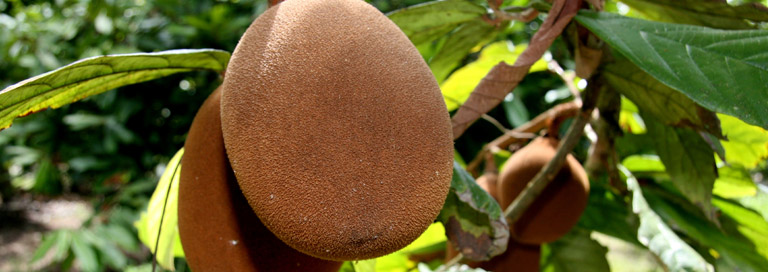For generations, Americans have been told that lowering fat and cholesterol is the be-all and end-all for good heart health. The American Heart Association has preached this claim as gospel since 1957.
But, here’s what they’re not telling you…
America’s obesity rates have tripled since the AHA made these recommendations.
It’s no coincidence. Everything they’ve been telling you to do is wrong…
Like when they say the only way to protect your heart is with their dangerous statin drugs. You know these drugs aren’t safe. They can cause kidney failure and liver damage. They could even kill you.
What statins don’t do is help your heart. In fact, they do the opposite – and actually harm your heart.
Fortunately, you can take back your natural, native heart health by reintroducing the missing nutrients that made your ancestors’ hearts healthy.
Including the often-ignored vitamin K2…
This nutrient is even more important if you were ever prescribed a statin.
You see, one of the ways statins damage your heart is by blocking K2. And that’s dangerous since K2 activates MGP, a protein that helps prevent the hardening of the arteries.
Without K2, plaque levels in your body worsen, increasing the risk of atherosclerosis and heart failure.
And now, a brand-new study reveals K2 helps supercharge your heart by blocking dangerous plaque build-up.1
In one of the longest studies looking into the connection between heart disease and K2, Danish researchers examined 50,000 people over a 23-year period.
They found that those who ate a diet rich in vitamin K2 had profoundly healthier hearts.
In fact, they had a 34% lower risk of atherosclerosis-related cardiovascular disease.
This backs up earlier research.
A 2018 study followed 4,600 men aged 53 and older for up to 11 years. The researchers revealed a 57% drop in coronary artery disease and a 52% lower
risk of aorta calcification – calcium blockage in the heart.2And in a separate study of 16,057 women, those who consumed high doses of Vitamin K2 lived 9% longer than everyone else in the study.3
It’s clear that our hearts are not getting the support they need from our modern diets and medicine.
If you want to keep your heart healthy, you must take matters into your own hands.
You can get vitamin K2 directly from some foods. Our primal ancestors got plenty from eating organ meats like liver. Other rich sources are meat, full-fat milk, cottage cheese, butter, and cheese. But these foods MUST come from grass-fed animals.
You can also supplement. Look for vitamin K2 in the form of “menaquinone-7.” It’s much more bioactive than other forms. Take 45 to 90 mcg a day with a meal to improve absorption.
2 More Ignored Heart-Health Nutrients To Take
As a regular reader, you know CoQ10 is my favorite nutritional supplement. And one that I recommend every person take, especially if you have heart disease or are taking a statin. But it’s not the only one I recommend.
I help my patients keep their blood vessels clear and flexible with a combination of supplements. Taken together, these nutrients will help your heart function the way it was meant to. Here are two more to try:
-
- Supplement with another ignored nutrient. Lycopene is an antioxidant that activates the cells in your heart to defend against threats. It does this by increasing levels of superoxide dismutase, or SOD – the strongest antioxidant enzymes your cells use. In a 10-year study, scientists found that diets rich in this nutrient resulted in a 17-26% lower risk of heart disease.4 Lycopene is primarily found in tomatoes and tomato products, but can also be found in watermelon, pink grapefruit, and papaya. Of course, you can also supplement. All you need is 20 mg a day.
- Try the “food of the gods.” Cupuaçu is an Amazon rainforest superfruit that tastes like chocolate. It contains two little-known flavonoids called theograndin I and theograndin II. These antioxidants haven’t been found in any other plant on the planet. They work to protect your heart in three ways – it keeps blood vessels and arteries flexible and strong; it helps regulate blood pressure, and it increases circulation.5 In other words, it keeps all key parts of your cardiovascular system working well. I recommend taking 500 mg of cupuaçu daily.
To Your Good Health,

Al Sears, MD, CNS
References:
1. Jamie W. Bellinge, Frederik Dalgaard, Kevin Murray, Emma Connolly, Lauren C. Blekkenhorst, Catherine P. Bondonno, Joshua R. Lewis, Marc Sim, Kevin D. Croft, Gunnar Gislason, Christian Torp‐Pedersen, Anne Tjønneland, Kim Overvad, Jonathan M. Hodgson, Carl Schultz, Nicola P. Bondonno. Vitamin K Intake and Atherosclerotic Cardiovascular Disease in the Danish Diet Cancer and Health Study. Journal of the American Heart Association, 2021; DOI: 10.1161/JAHA.120.020551
2. Greenland P, Blaha MJ, Budoff MJ, Erbel R, Watson KE. Coronary Calcium Score and Cardiovascular Risk. Journal of the American College of Cardiology. 2018;72(4):434-447. doi:10.1016/j.jacc.2018.05.027
3. DR W. GIFFORD-JONES AND DIANA GIFFORD-JONES Syndicated. “Common Sense Health: It’s Dangerous to Ignore Vitamin K2.” The Bakersfield Californian, 15 Mar. 2021.Accessed 19 Nov. 2021.
4. Jacques PF, Lyass A, Massaro JM, Vasan RS, D’Agostino RB Sr. Relationship of lycopene intake and consumption of tomato products to incident CVD. Br J Nutr. 2013 Aug 28;110(3):545-51. doi: 10.1017/S0007114512005417. Epub 2013 Jan 15. PMID: 23317928; PMCID: PMC3710301.
5. Yang H, et al. “New bioactive polyphenols from Theobroma grandiflorum (“cupuaçu”), J Nat Prod. 2003;66(11):1501-4.

